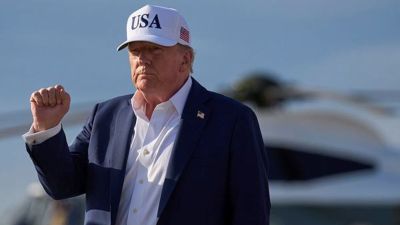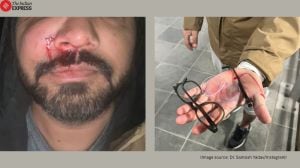Himachal Scholarship Scam | HC denies bail to ED, CBI officers in bribery case: ‘grave abuse of official power’
Court says allegations against Vishal Deep and Balbir Singh strike at 'heart of institutional integrity'; terms conspiracy deliberate, coordinated and corrosive to public trust
 “Such exceptions must be tempered by the imperative to preserve the integrity of the process,” the court said, refusing to extend bail to either petitioner.
“Such exceptions must be tempered by the imperative to preserve the integrity of the process,” the court said, refusing to extend bail to either petitioner.
Holding that allegations against them represent a “grave abuse of official power”, the Punjab and Haryana High Court denied regular bail to former Enforcement Directorate assistant director Vishal Deep and Central Bureau of Investigation’s (CBI) Deputy SP Balbir Singh, both accused of demanding and facilitating bribes from accused in the Himachal Pradesh scholarship scam.
Dismissing three connected bail petitions, a bench of Justice Manjari Nehru Kaul held that the allegations warranted continued custody of the accused to preserve the integrity of the trial process.
The court noted that although the prosecution’s case involved circumstantial and digital evidence, it nevertheless revealed “a premeditated and well-orchestrated conspiracy” that exploited the institutional positions of the two senior officers.
“The allegations against petitioner Vishal Deep of demanding illegal gratification in exchange for manipulating outcome of the investigation and influencing arrests strike at the heart of the institutional integrity,” the court observed. It added that the use of encrypted apps like Zangi, assumed identities such as ‘Rahim’, and involvement of family-owned vehicles painted a picture of “deliberate and strategically engineered” misconduct.
The FIRs in the case, both dated December 22, 2024, stemmed from complaints by Bhupinder Kumar Sharma, chairman of Dev Bhumi Group of Institutions, Una, and Rajneesh Bansal, chairman of Himalayan Group of Professional Institutions, Sirmaur. They alleged that bribes of Rs 55 lakh and Rs 60 lakh, respectively, were demanded to avoid arrest in the ongoing ED and CBI investigations into the alleged scholarship scam. Vishal Deep, posted in Shimla at the time as the ED investigating officer, was accused of demanding bribes while posing under false names.
A joint trap was laid following the complaints. The CBI claimed that two vehicles, one registered in Vishal Deep’s name and another in his brother Vikas Deep’s name, were found with traces of phenolphthalein, a chemical used in trap operations. Additionally, Rs 1.25 crore was recovered from Vikas Deep, further strengthening the prosecution’s case, the court noted.
The petitioners had argued that no direct recovery was made from them, and that the case relied solely on circumstantial and documentary evidence. Senior advocate Vinod Ghai, appearing for Vishal Deep, argued that his client had been falsely implicated and had already been granted bail in the second FIR. He submitted that “further incarceration would serve no useful purpose” since the chargesheet had been filed on March 15 and no charges had yet been framed.
Counsel for Balbir Singh contended that his client was not named in the initial FIR and was being implicated based on an allegedly inconclusive audio recording. Balbir Singh also cited his serious medical condition, including a renal transplant and chronic kidney disease, and stressed that he had cooperated with the investigation while out on interim medical bail.
However, the court was unconvinced, stating that Balbir Singh’s role “went beyond passive facilitation”. His alleged coordination of meetings, selective leave from duty on critical dates, and presence corroborated by CDRs and CCTV footage “indicate active participation in the execution of the conspiracy,” the court held.
On the medical plea, the court took on record a report from PGIMER, Chandigarh dated July 2, which stated that Balbir Singh’s cardiac and renal status was “currently stable and within normal limits”. It directed the jail authorities to ensure follow-ups and treatment as advised but did not find medical grounds sufficient for bail.
While acknowledging that “bail is the rule and jail is the exception”, the court underscored that this principle must be balanced against the need to protect public trust and prevent potential tampering of evidence, particularly since the complainants had yet to testify.
“Such exceptions must be tempered by the imperative to preserve the integrity of the process,” the court said, refusing to extend bail to either petitioner.












